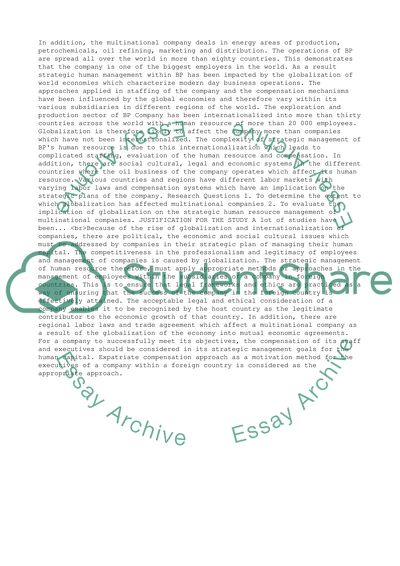Cite this document
(“The Impact of Globalization on Strategic Human Resources Management: a Literature review”, n.d.)
Retrieved from https://studentshare.org/management/1439454-the-impact-of-globalization-on-strategic-human-resources-management-a-case-study-of-the-bp-oil-corporation
Retrieved from https://studentshare.org/management/1439454-the-impact-of-globalization-on-strategic-human-resources-management-a-case-study-of-the-bp-oil-corporation
(The Impact of Globalization on Strategic Human Resources Management: A Literature Review)
https://studentshare.org/management/1439454-the-impact-of-globalization-on-strategic-human-resources-management-a-case-study-of-the-bp-oil-corporation.
https://studentshare.org/management/1439454-the-impact-of-globalization-on-strategic-human-resources-management-a-case-study-of-the-bp-oil-corporation.
“The Impact of Globalization on Strategic Human Resources Management: A Literature Review”, n.d. https://studentshare.org/management/1439454-the-impact-of-globalization-on-strategic-human-resources-management-a-case-study-of-the-bp-oil-corporation.


